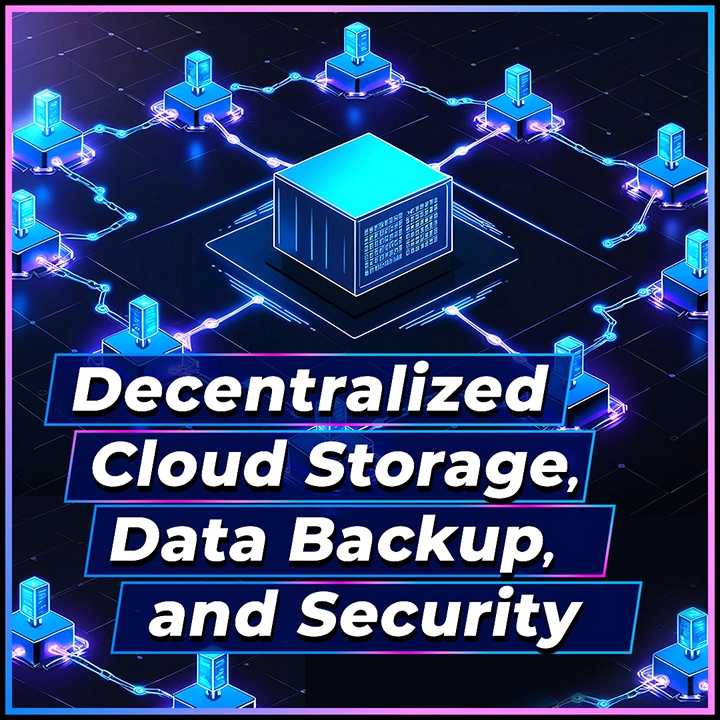In the ever-evolving data storage landscape, decentralized cloud storage has emerged as a groundbreaking solution that addresses many of the challenges associated with traditional centralized systems. This innovative approach not only enhances data security but also revolutionizes the way we think about backups.
What is Decentralized Cloud Storage?
Decentralized cloud storage is where data is stored in a distributed network of computers rather than on centralized servers owned by a single provider. This system leverages blockchain technology and peer-to-peer networks to create a more secure, resilient, and efficient storage solution.
How Does Decentralized Cloud Storage Work?
Data Distribution: When you upload a file to a decentralized cloud storage network, it's encrypted and split into multiple fragments.
Network Storage: These encrypted fragments are then distributed across numerous nodes (computers) in the network, each storing a small piece of your data.
Redundancy: The system creates copies of each fragment and stores them on different nodes, ensuring data availability even if some nodes go offline.
Blockchain Integration: The locations of these fragments are recorded on a blockchain, creating an immutable record of where your data is stored.
The Role of Backup in Decentralized Cloud Storage
While decentralized cloud storage inherently provides a form of backup through its distributed nature, implementing additional backup strategies is still crucial:
Multiple Copies: The system automatically creates and maintains multiple copies of your data across different nodes, providing built-in redundancy.
Geographical Distribution: Data fragments are often stored on nodes in different geographical locations, protecting against localized disasters or outages.
Versioning: Many decentralized storage solutions offer versioning capabilities, allowing you to recover previous versions of your files if needed.
Hybrid Approaches: Consider combining decentralized storage with traditional backup methods for an extra layer of protection for critical data.
Benefits of Decentralized Cloud Storage for Backups
Enhanced Security: Data is encrypted and distributed, making it extremely difficult for unauthorized parties to access or compromise your information.
Improved Resilience: The system's distributed nature means there's no single point of failure, reducing the risk of data loss due to server outages or attacks.
Cost-Effectiveness: Decentralized storage can often be more cost-effective than traditional cloud storage solutions, as it utilizes unused storage space on network participants' devices.
Data Ownership: Users retain full control over their data, addressing concerns about vendor lock-in and data privacy familiar with centralized cloud providers.
Decentralized cloud storage represents a significant leap forward in data backup and security. Distributing data across a network of nodes offers a robust, secure, and efficient solution for storing and protecting valuable information. As this technology continues to evolve, it has the potential to reshape our approach to data storage and backup, providing users with greater control, security, and peace of mind in an increasingly data-driven world. Find a step-by-step guide on how StorX, the decentralized cloud storage provider, works with Ahsay backup.
